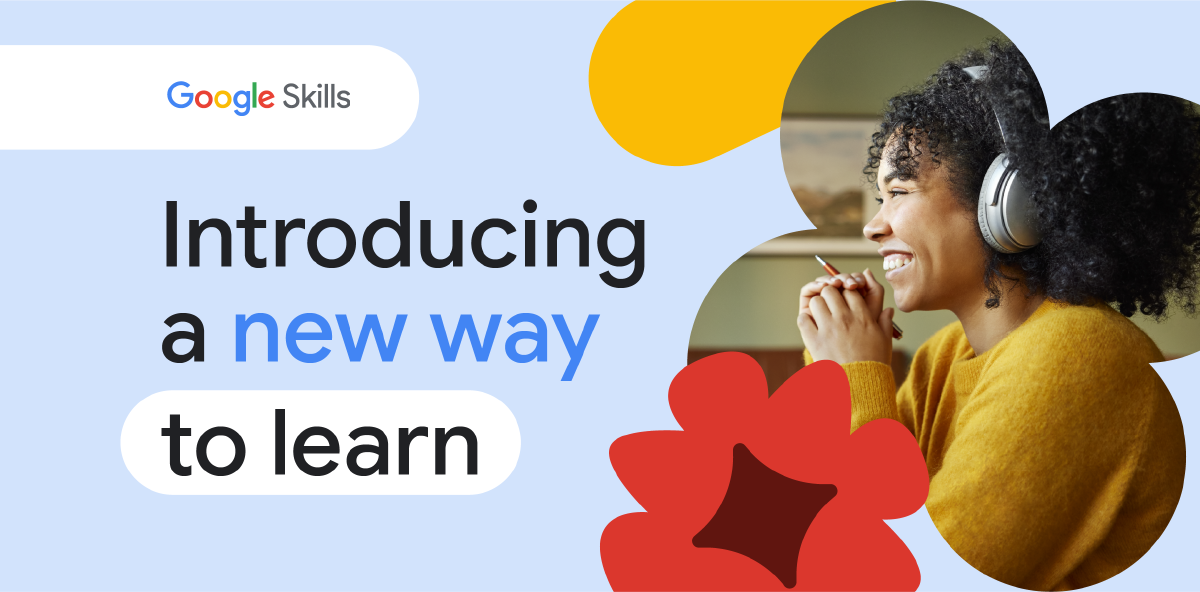Google just launched Google Skills — consolidating nearly 3,000 courses from Google Cloud, DeepMind, Grow with Google, and Google for Education into one platform.
The real story? GEAR (Gemini Enterprise Agent Ready) — Google’s ambitious sprint to train 1 million developers to build production-ready AI agents on Gemini Enterprise.
This isn’t just education. It’s ecosystem engineering.
The announcement breakdown#
Google Skills platform:
- Nearly 3,000 courses and labs consolidated (Google Cloud, DeepMind, Grow with Google, Education)
- Free for Cloud customers
- Gemini Code Assist integrated directly into 20+ hands-on labs
- New skill badges for MCP, Agent Development Kit, and vibe coding
Gamification features:
- Leagues, achievements, learning streaks
- Company leaderboards for organizations
Enterprise tools:
- Course assignment, advanced reporting, custom learning paths
GEAR: The 1 million developer sprint#
Gemini Enterprise Agent Ready (GEAR) is a cohort-based program to train 1 million developers on:
- Building, deploying, and managing AI agents on Gemini Enterprise
- Model Context Protocol (MCP) and Agent Development Kit
- Enterprise-ready agentic AI (not prototypes)
The play: Train a million developers specifically on Gemini → create ecosystem lock-in → compete with AWS Kiro, Microsoft Copilot, and others for the agentic AI market.
Jack Henry partnership: Certification → Interview#
Google partnered with Jack Henry (financial services) for skills-based hiring:
- Complete Google Cloud Certificate (cybersecurity or data analytics)
- Do custom hands-on labs simulating Jack Henry’s work
- Labs = first stage of hiring process → direct interview
No resume screening. Just: prove skills, get interview.
Google plans to expand this to more Cloud customers. The pitch: solve your skill gap problem with our certified talent pool.
The three-layer play#
Google is building a vertically integrated ecosystem:
- Platform layer: Gemini Enterprise (competing with OpenAI, AWS, Microsoft)
- Education layer: Train 1M developers specifically on Gemini (lock-in through learning)
- Hiring layer: Connect those developers to jobs at Cloud customers (close the loop)
The strategy: By the time competitors respond, Google has 1 million developers already trained on Gemini. That’s a talent moat.
Our take: Thinking points#
🎯 This is ecosystem engineering, not just education
Google isn’t teaching generic AI skills. They’re training developers specifically on their platform. Once you’ve earned Gemini badges, built Gemini projects, and gained Gemini expertise, switching to AWS or Azure has a higher switching cost. The “free” education creates platform stickiness.
💼 Skills-based hiring could reshape tech recruiting
The Jack Henry partnership is the sleeper story. No resume screening, no traditional gatekeeping — just prove you can do the work via hands-on labs. If this scales to more companies, Google becomes the talent marketplace, not just the learning platform. LinkedIn meets Coursera meets job placement.
🏃 The 1 million developer sprint is aggressive
For context: GitHub has ~100M developers total. Google wants to train 1% of all developers on Earth specifically for agentic AI on Gemini Enterprise. That’s either visionary or delusional, depending on whether agentic AI actually becomes the next platform shift.
🎮 Gamification matters more than you think
Leagues, achievements, learning streaks — this sounds gimmicky until you realize Duolingo built a $6B+ company on gamified learning. If Google can make AI education feel like a game, they’ll capture attention in a way AWS’s traditional certification program never could.
🤔 Vertical integration vs. openness
Microsoft has GitHub Skills + Azure AI. AWS has training + Kiro. Anthropic/OpenAI have… documentation. Google is betting that vertically integrating education into the platform wins. But historically, the most open platforms tend to dominate. Will Google’s walled garden approach work for learning?
📊 The metrics will tell the story
Watch these numbers over the next year:
- How many developers actually enroll in GEAR?
- What % complete the program vs. drop out?
- How many companies adopt the Jack Henry model?
- Does Gemini Enterprise adoption correlate with GEAR participation?
⚖️ Lock-in vs. opportunity — both are true
This is simultaneously:
- A genuine democratization of AI education (free, accessible, high-quality)
- A competitive moat disguised as public good (platform lock-in via learning)
Developers get real value. Google gets ecosystem control. Whether you see this as win-win or Faustian bargain depends on how much you value platform independence.
What to watch next#
- Expansion of hiring partnerships beyond Jack Henry
- Competitor responses from AWS and Microsoft
- Actual enrollment numbers for GEAR (Google’s transparency here)
- Quality of the training (reviews from early participants)
- Whether enterprises actually hire based on these credentials
Get started: Claim your 150 free learning credits and explore Google Skills today.
Read more: For context on how AI agents work and how they’re changing development, see my analysis of Cursor Plan Mode and the comprehensive breakdown of AI IDE architecture.


